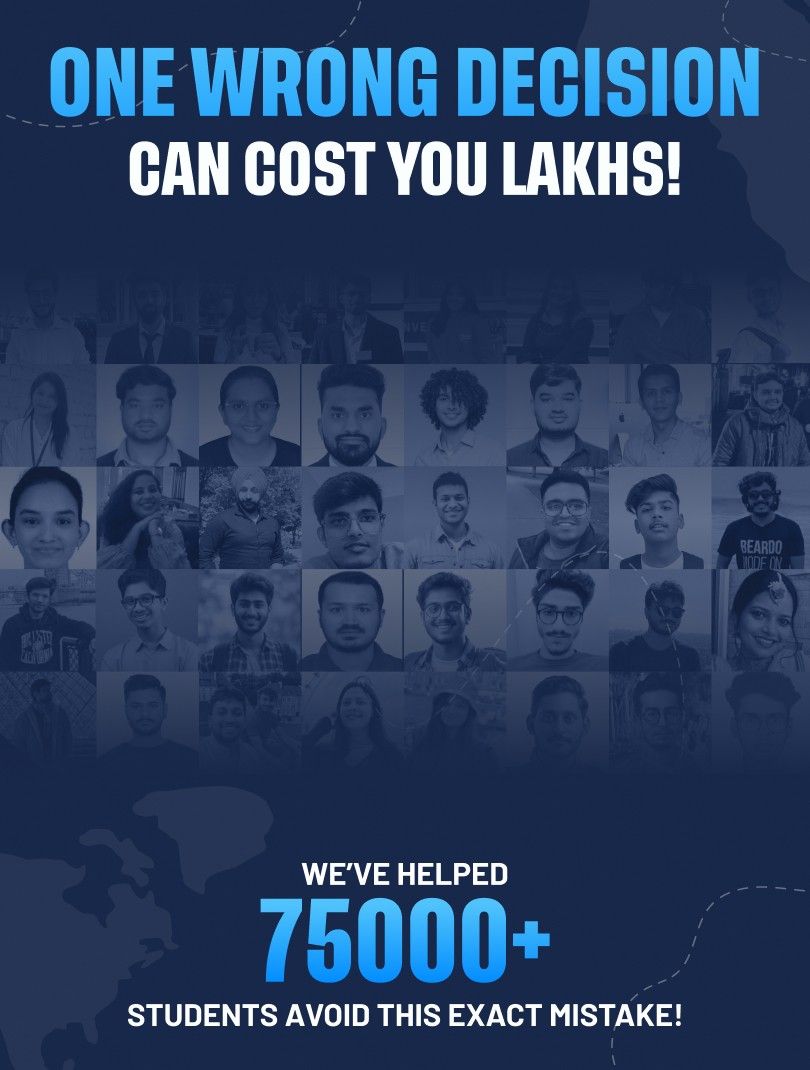
How Long Does It Take to Get a Study Visa for Europe? Processing Time Explained
How Long Does It Take to Get a Study Visa for Europe? Processing Time Explained

Dreaming of studying in Europe? With world-class universities, diverse cultures, and wide-ranging academic programs, it’s no surprise that thousands of Indian students apply for European study visas every year. But one of the most common questions students ask is: how long does it take to get a student visa for Europe?
In this blog, we’ll break down the complete Europe study visa timeline 2026, giving you clarity on the Europe student visa time from India, the general study visa processing time for European countries, and how to avoid delays.
Europe Study Visa Processing Time: The Basics
When planning your academic journey, understanding the Europe study visa processing time is crucial. On average, it takes anywhere between 15 to 60 days for most European countries to process a student visa. However, the timeline may vary depending on the country, the time of year, and how complete your application is.
For instance, Germany usually takes around 4 to 12 weeks, especially due to high demand and detailed documentation requirements. France is relatively quicker, with a typical processing time of 2 to 4 weeks, while Italy may take 3 to 8 weeks. If you're applying to Spain, expect your visa to be processed in 3 to 6 weeks. Countries like the Netherlands also process student visas in around 2 to 4 weeks, whereas Sweden and Finland may take longer—ranging from 1 to 3 months and 1 to 2 months, respectively.
These timelines are general estimates and may vary based on your individual case. For the most accurate and up-to-date information, always refer to the embassy website or consult the VFS Global center handling your application.
How Long Does It Take to Get a Student Visa for Europe?
One of the most pressing questions Indian students ask is: how long does it take to get a student visa for Europe in 2026? While visa timelines vary across countries and individual circumstances, it's generally recommended to start your application process at least 2 to 3 months before your intended course start date.
The Europe student visa time from India depends on several steps and formalities that need to be completed on time and without errors. Here's a breakdown of what the process typically involves:
1. Gather All Required Documents
Before initiating your visa application, ensure you have all necessary paperwork in place. This includes your university admission letter, proof of financial resources (such as a blocked account or bank statements), accommodation details, travel insurance, academic transcripts, and passport copies. Missing documents can delay or even jeopardize your visa approval.
2. Book Your Appointment Early
To submit your application, you’ll need to schedule an appointment at the embassy, consulate, or VFS center. Appointment slots fill up quickly, especially between June and September, when thousands of students apply. Booking early helps you stick to your desired Europe study visa timeline 2025.
3. Attend the Interview & Provide Biometrics
Most European embassies require students to attend an in-person interview and provide biometric data. This step is crucial in determining your visa approval. Ensure you answer confidently and have all physical documents arranged in the required order.
4. Visa Application Review and Processing
After submission, your application enters the evaluation phase. The study visa processing time for European countries typically ranges from 15 days to 12 weeks, depending on the destination country, time of year, and the completeness of your file. Delays may occur if the embassy requests additional documents or clarifications.
During peak seasons, such as the summer intake, Europe study visa processing time can stretch due to high application volume. Therefore, the Europe student visa time from India may be significantly longer if you apply late or during high-demand periods.
Study Visa Processing Time for European Countries: What Affects It?
Several factors influence the study visa processing time for European countries, including:
- Completeness of your application: Missing or incorrect documents can lead to delays or rejections.
- Embassy workload: High volumes of applications during peak seasons may increase wait times.
- Country-specific rules: Some countries like Germany have a stricter, more time-consuming visa process compared to others like France or Italy.
- Interview scheduling: Delays in getting an appointment at VFS or the consulate can affect your Europe study visa timeline 2026
Tips to Avoid Delays in Your Europe Student Visa
Securing a European student visa smoothly and on time requires careful planning and attention to detail. Since the Europe study visa processing time can vary widely depending on the country, season, and applicant profile, taking proactive steps can make all the difference. Below are essential tips to help you avoid delays and stay on track with your Europe study visa timeline 2026:
Start Your Application 3–4 Months in Advance
The earlier you begin your application process, the better. Starting at least three to four months before your course start date gives you enough time to collect the required documents, book your VFS appointment, and handle any unexpected issues. Many countries, including Germany and Sweden, can take several weeks to issue a student visa—starting early keeps you stress-free and within your timeline.
Double-Check All Documentation Requirements
Every country has its own student visa requirements, and even a small oversight can cause your application to be delayed or rejected. Make sure all your documents are in the required format, properly translated (if needed), notarized, and up-to-date. Refer to the official Germany student visa checklist or any other applicable country's checklist to avoid missing out on crucial paperwork.
Book Your Appointment Early
Visa application appointments—especially through VFS Global—tend to fill up quickly, particularly between June and September. Booking your VFS Germany appointment or other relevant slot as early as possible ensures you don’t face unnecessary delays due to slot unavailability. Late appointment bookings can push your travel plans back by weeks.
Stay Updated with Embassy Notifications
Embassies and consulates occasionally update their visa guidelines or processing timelines. Subscribe to their notifications, regularly check their official websites, or stay in touch with your education consultant. Missing a new requirement could mean re-submitting documents and delaying your application further.
Track Your Application Status Online
Once you submit your application through VFS Global Germany or any other center, make sure to monitor the status using the VFS Germany visa tracking system. This helps you stay informed about any pending documents or actions required on your end. Timely responses to embassy requests can prevent your application from getting stuck in processing.
Final Thoughts
Understanding the Europe study visa processing time is a crucial step for any student planning to study abroad in 2026. While the Europe student visa time from India can vary depending on the destination and individual circumstances, a well-prepared application submitted early gives you the best chance for a smooth process.
Still wondering, how long does it take to get a student visa for Europe? The answer largely depends on you prepare early, follow embassy guidelines, and stay organized.
Ready to take the next step in your international education journey?
FAQS
Get A Free Consulting Today
Get your answers related to abroad study.



